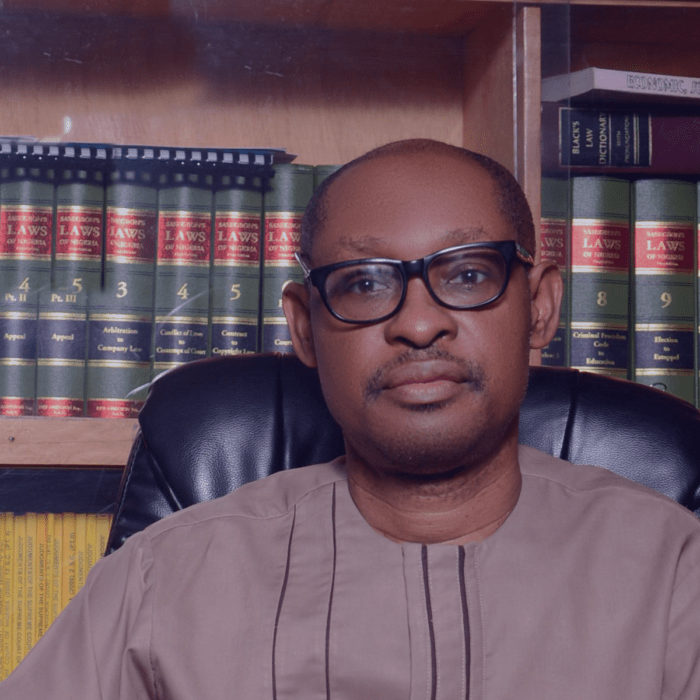Business
Electoral Dispute Adjudication: Matters Arising -By Eze Onyekpere
If this is the right end of the work of the tribunals, then the supporting adjectival law in the rules and procedures should also be designed to meet the goal. It would be a big disservice to society when after a lengthy process, the decision of the courts validates the declaration and return of persons who may not have won the majority of lawful votes as elected.

The law perhaps plays a central role in the design and management of elections. The courts through the election tribunals have been positioned as the last hope of the citizens and electoral contestants in the bid to guarantee free, fair and credible elections. Election tribunals are fundamental to the promotion and protection of democratic norms and values and act as legal bulwarks for defending the vote and mandate of the electorate. The ventilation of the right to vote and to be voted for and the resolution of conflicts arising from electoral contests are some of the duties vested in the judicial arm of government. The discourse reviews the context of electoral dispute adjudication in light of recent electoral tribunal judgments.
It is imperative to start by affirming that election disputes are not just civil claims ventilating the rights of private individuals. They are claims and questions of wider significance to the integrity of our constitutional democracy and the political stability of Nigeria. They also bother on the collective interest of society to be governed by a democratic government founded on the will of the people and expressed in periodic and genuine elections. Although free and fair elections are best guaranteed by the legal and legitimate conduct of the election management body, security agencies, other government agencies, political parties, candidates and the larger civil society, the challenge is to use the law as an instrument of social engineering to resolve democratic conflicts in the overall interest of society.
The return to civil rule in 1999 started a process of a winner-takes-all, a depreciation of our values, the enthronement of corruption and contempt for the rule of law and the popular will. The political parties were not formed with any strong ideological or thought leanings and persons who found themselves in control of the parties did not imbibe democratic qualities and fervour. Thus, from party primaries to the general election, the process became one of war, which though bound by rules, had the rules more honoured in the breach. Money was and is still being used beyond the statutory prescriptions, violence is deployed while rigging and manipulation of processes have become the norm. It gets ridiculous when ballot boxes are snatched in broad daylight or in the night and their contents containing the original votes of the electorate changed with thumb-printed votes for the authorising candidates. Sometimes, the electoral umpire, the Independent National Electoral Commission, participates in the breach of the law and manipulation of the vote while the security agencies see and hear of no violations of the Electoral Act, constitution and other laws. This is the background to the persistent and increasing approach for redress by candidates and aspirants at the tribunals and the courts.
From the constitutional duty of the courts and the conduct of the contestants, electoral umpire and security agencies, the courts are expected to play a stabilising role in democratic consolidation. It is therefore a fundamental aphorism that the effectiveness of the courts in resolving election disputes contributes in no small measure to the consolidation of democratic values in Nigeria. The effective interpretation and adjudication of election disputes also strengthens the rule of law. But how have the courts advanced or discharged this stabilising role? Have the majority of Nigerians been satisfied with the decisions of the courts on major election cases? The answer to the last poser is an obvious no. Why is there a huge disconnect between the decision of the tribunals and the notion of the majority of Nigerians on the justice of the cases? What is the goal and ultimate end of electoral dispute adjudication? These posers need to be resolved going forward for the sustenance of democracy.
Like the categorical syllogism constructed from the premises, up the middle term and the conclusion, the poser is raised; what should the courts seek to do in electoral dispute adjudication? By establishing what the courts should do, an objective crucible to determine whether the judgments met the mark would have been erected. It is posited that electoral adjudication is part of a chain of events that starts with the registration of voters, voting, the announcement of results and the challenge to the results based on a claim of substantial non-compliance, corruption, etc., being part of the last value point in the chain. A chain is as strong as its weakest point. It is further posited that the goal of the entire electoral value chain is to make the vote count so that the wish of the electorate is reflected in the occupancy of elective positions. Thus, the process from the registration of voters up to the legal challenge before the tribunals is geared to make the votes count. All the laws, policies, rules, guides and forms that regulate electioneering and the work of the tribunals and courts are all procedures and processes meant to facilitate the achievement of the ultimate end.
If this is the right end of the work of the tribunals, then the supporting adjectival law in the rules and procedures should also be designed to meet the goal. It would be a big disservice to society when after a lengthy process, the decision of the courts validates the declaration and return of persons who may not have won the majority of lawful votes as elected. Using technical rules of procedure in favour of any party to the proceedings is like a doctor who attends to a patient with severe pains, constitutes a team of consultants to assist him and uses very sophisticated medical equipment for diagnosis. At the end of the day, instead of the pain reducing, it gets more severe and all he can plead is his expertise. The electorate (patient here) needs to be led by the person who won the majority of the lawful votes (reduce the pain for which he came to the clinic). Labelling the bulk of Nigerians when they complain as “lay men and women”, ignorant of the law, when decisions that do not resonate with the people’s sense of justice are delivered, is the height of vacuous professional arrogance. It is not value for money because the experts are paid by taxpayers and the will of the taxpaying majority is the supreme law of the land.
In the final analysis, if the manipulator of the election is validated by the courts based on certain technicalities, it is a direct message for every candidate to try and win by any means available and possible and thereafter the courts will use the presumption of regularity to validate the election. Alternatively, the courts will put an insurmountable burden of proof beyond any iota of doubt of petitioners. So, elections will become fully licensed by default, through the failure of the judiciary, as full-scale wars where no one takes prisoners.























